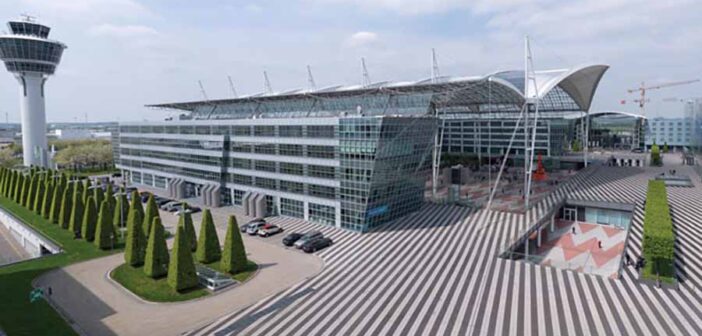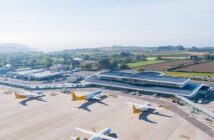Munich Airport, officially Franz Josef Strauss International Airport (MUC), serves as Bavaria’s primary hub, located 28.5 kilometres northeast of Munich’s city centre near Freising. Handling 41.6 million passengers in 2024, it ranks as Germany’s second-busiest airport, connecting to 248 destinations with over 70 airlines, including Lufthansa, Air Canada, and easyJet. Its two-terminal layout, modern amenities, and excellent transport links offer a practical experience for travellers exploring Munich or connecting worldwide.
The passenger experience at MUC is generally efficient, thanks to its well-designed infrastructure. Terminal 1, divided into modules A to E, serves airlines like Delta and Emirates, while Terminal 2, with its Satellite building, is home to Lufthansa and Star Alliance partners. Check-in and security typically take 20 to 30 minutes, but peak summer periods can see queues up to 45 minutes, especially in Terminal 1. Passengers are advised to arrive two hours early for domestic flights and three for international to account for security and passport control. Automated boarding card checks and EasyPASS for non-Schengen flights reduce wait times, while the FaceBoarding system in Terminal 2 streamlines boarding. Long walks in Terminal 1 or bus transfers to remote stands can slow progress, and travellers note occasional signage confusion. Accessibility is strong, with ramps, lifts, and wheelchair assistance, though pre-booking with airlines is recommended.
Access to the airport is straightforward, with robust transport options. The S1 and S8 S-Bahn lines connect to Munich’s city centre in 40 minutes for £10, running every 10 minutes. The Lufthansa Express Bus reaches Schwabing and Central Station in 40 to 45 minutes for £11, with Wi-Fi on board.
Taxis cost around £60 to downtown, while rideshare services like Uber offer similar fares. Car rental agencies, including Sixt and Hertz, are located in the Munich Airport Center (MAC). The A92 motorway ensures a 35-minute drive to the city, though traffic or construction can add delays. Over 11,500 parking spaces, including P1 for short-term and P20 for long-term, start at £5 per hour, with discounts for disabled passengers. A free shuttle bus connects Terminals 1 and 2 in 5 to 7 minutes.
The airport’s layout is clear, with Terminal 1’s five modules and Terminal 2’s G, H, J, K, and L gates connected by the MAC, a central hub with shops and transport links. Terminal 2’s Satellite, accessed via a 1-minute underground shuttle train (PTS), serves additional gates. Moving walkways and clear signage aid navigation, though Terminal 1’s size can require long walks. During peak times, congestion at security or non-Schengen passport control in Terminal 2 can slow progress. Fast Track lanes and CT scanners at 18 checkpoints help reduce delays. The Passngr app provides real-time gate and wait-time updates.
Dining and retail options are extensive. Terminal 2’s marketplace, inspired by Munich’s Viktualienmarkt, features Alfons Schuhbeck’s Speisekammer for Bavarian dishes and Hans im Glück for burgers. Airbrنu, the world’s only airport brewery, serves local beer. Terminal 1 offers fast food like McDonald’s and Mediterranean options. Duty-free shops, including MyDutyFree, stock luxury brands like Montblanc and Bavarian souvenirs, though prices are higher than in the city. Travellers recommend dining downtown for better value. Free Wi-Fi, via the “MUC Free Wi-Fi” network, is reliable, and charging stations are plentiful.
Facilities cater to diverse needs. Baggage storage in the MAC costs £2.30 to £3.30 for three hours, and wrapping services are £10. Nine lounges, including Lufthansa’s in Terminal 2, offer showers and snacks for £25 to £40. NapCabs in Terminal 2 provide private rest spaces from £12 for 30 minutes. Family amenities include play areas and nursing rooms. A medical clinic, pharmacy, and multi-faith prayer room operate 24/7. Smoking is restricted to designated rooms in Terminals 1 and 2. The Hilton Munich Airport, connected to Terminal 2, starts at £120 per night.
On-time performance is generally strong, with real-time updates on the MUC website or Flightradar24. Delays, averaging 15 to 30 minutes, can occur due to high passenger volumes, weather, or air traffic control issues. Single-runway operations during peak times may exacerbate delays. EU regulations allow up to €600 compensation for delays over three hours if airline-related.
Connections are efficient, with minimum connection times of 30 minutes for domestic and 45 minutes for international flights, thanks to Terminal 2’s compact design for Star Alliance carriers. The PTS shuttle and free bus ease terminal transfers, though non-Schengen passengers may face passport control, adding up to 30 minutes. Checking terminal assignments via the Passngr app ensures smooth transfers.




